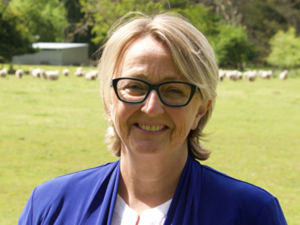Rural Women New Zealand’s (RWNZ) new president, Sandra Matthews, says the cancellation of rural school bus services could have devastating consequences.
This year, the Ministry of Education has reviewed 290 of its 1,990 school bus routes. Of those, 38 have been or will be cancelled.
Matthews says these decisions are proving to have widespread consequences for rural families and communities.
“We are aware of families that will now have to drive more than an hour each way to take their tamariki [children] to school, which is unsustainable for working parents and their employers alike,” Matthews told Rural News.
She says this is leading some families to contemplate moving away from rural areas altogether to ensure their children can access education.
“This threatens the very viability of our rural communities,” Matthews says.
Matthews says the issue is the Ministry of Education’s guidelines for rural school bus services, which she labels as “outdated”.
Currently, there are three criteria for a student to be applicable for transport assistance from the Ministry of Education:
- The student must enrol at the nearest state or state-integrated school they can enrol at.
- The student must live more than 3.2km (Years 1-8) or 4.8km (Years 9-13) from the school.
- The student cannot have access to public transport.
Additionally, a minimum of eight children must catch the bus on the route for it to continue running.
Matthews says this number needs to be lowered to account for the realities of smaller, modern rural communities which have fewer people but “are no less important than larger communities”.
She says RWNZ has requested a meeting with Minister for Rural Communities Mark Patterson and Minister for Education Erica Stanford to discuss the organisation’s three requests on the issue.
They want to see Stanford commission a full review of the policies governing the Ministry’s rural school bus guidelines, a halt on further bus route cancellations until that review is completed, and that the review is undertaken urgently in consultation with rural community representatives.
“These services are critically important to ensure rural tamariki have equitable access to education,” Matthews says.
“We must do everything to remove barriers to education so every child can access education. This is critical if the Government is serious about growing New Zealand into a well-educated society for the future and getting truancy levels down,” she adds.
RWNZ is not alone in its opposition to the cancellation of rural bus services.
Labour Party education spokesperson Jan Tinetti says that for working parents in rural areas, school buses are essential.
“They’re now facing hours out of their day to get their young people to and from school – or even longer if they have children in both primary and high school,” Tinetti says.
“Rural school bus cancellations and changes are leaving families scrambling to find alternatives. These cuts are hitting rural communities hard and making access to education even more difficult, while the Government claims to be focused on attendance,” she says.



















